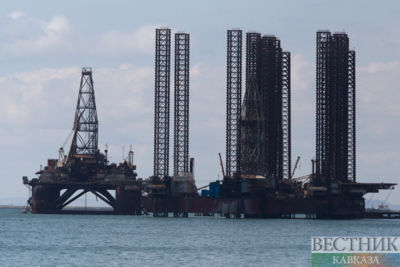Two years have passed since the historic moment for the modern world economy when oil fell below $100 a barrel for the first time after a long time, reaching long-term lows in the range of $30-50 a barrel. Head of the Center for International Energy Markets IES RAS Vyacheslav Kulagin told Vestnik Kavkaza about changes in the oil market and what experience received exporting countries.
- What are the results of the decline in world oil prices and how much the oil market has changed in these two years, in your opinion?
- Certainly, from the viewpoint of consumers in respect of crude oil and oil products, there are no any serious changes: resources have become more available and it is more beneficial for consumers, except for those countries whee it is observed the overlap of other factors (changes in the tax system, the devaluation of national currency) during those years, which led to increase in prices of petroleum refining as in Russia, instead of decrease. Such low oil prices have restrained the ardor of those who were intended to start using alternative energy sources, as the number of consumers who wanted to buy electric carts also decreased.
Another thing is lessons for the oil-producing countries. For those who expected the increase in prices and intended to keep them at a level not less than $100 a barrel, the lesson turned into a bankruptcy or downsizing, cuts in investment and project closure. Highly risky business with a recoupment in the neighborhood of $100 a barrel had to leave or change priorities. In particular, the companies involved in deepwater drilling realized how it was possible to reduce costs and optimize business, where the limit of their survival in the market. Those countries and companies that had small production price made a bit different different conclusions, as the main difference between the market price and the price of production is directed to the state budget in the form of taxes. Cheap oil forced the Middle East countries to live according their means. Even those who extracted very cheap crude had to look for ways to optimize their work, as the state cannot safely cut incomes withdrawn from the industry.
The impact of falling oil prices have been strongly mitigated for Russia by the weakening of the ruble, as the main budgetary costs incurred within the ruble: ruble revenue fell not so much and some companies had growth and passed the crisis period relatively favorable. It was a lesson in terms of new expensive projects: companies had to think seriously whether it is worth dealing with such projects, as field development of oilfields in the Arctic, as well as rethink the whole list of projects, which had been planned. It was a good lesson in terms of the tax system, since the state began to receive less money, and it is primarily aimed at increasing the tax burden on energy companies to transfer part of their income to cover the budget deficit. But the real life has shown that we should not rely only on oil and gas revenues in the budget. It is necessary to develop other sectors of the economy, gradually moving away from oil dependence. This was another signal to rethink the economic policy. It was necessary to think about the structure of GDP without expectations that everything is always will be good in the world and oil will always bring a lot of money.
















